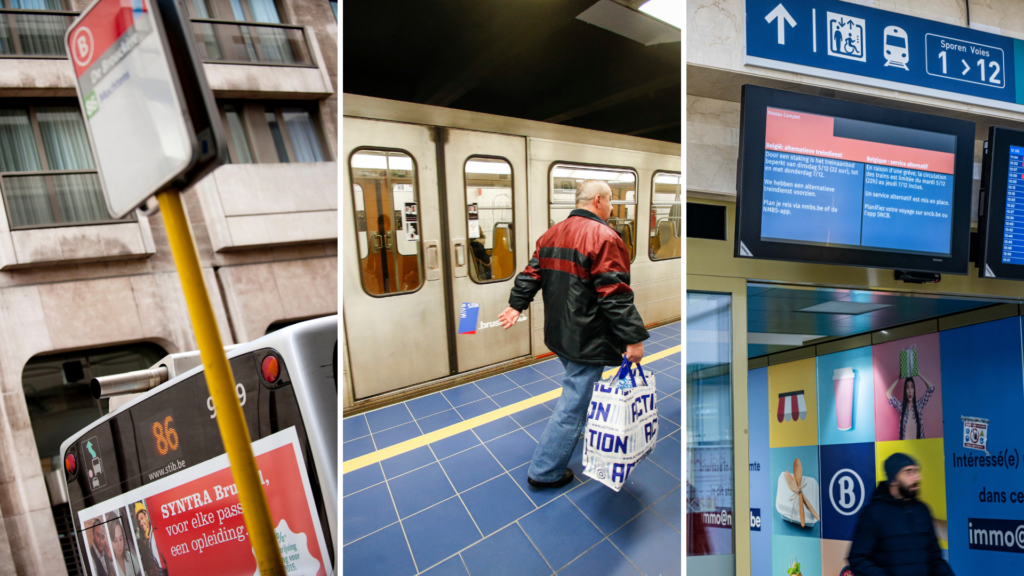Several organisations have called on Belgium's next governments to take urgent steps to make public transport more accessible and efficient - noting that the current system is fragmented, tainted by delays and for many, too expensive.
In the face of global heat records being broken month after month, increasingly congested cities which cost the Belgian economy €5.1 billion in 2023, and the health risks posed by air pollution becoming more clear, several organisations (including BRAL and Network against Poverty, as well as universities such as VUB and UHasselt) have published an open letter calling on the new governments to push for a shift to integrated (public) transport.
"Rail infrastructure has rusted through, metro tunnels are dilapidated, the fleet of vehicles is far too old and has difficulty renewing itself, buses and trams get stuck in increasingly heavy traffic, and so on," the organisations wrote.
The organisations also pointed out the fragmented nature of Belgium's current public transport system: while the SNCB railway operator oversees trains on a national level, the three regions have their own companies (STIB in Brussels, De Lijn in Flanders and TEC in Wallonia).
This means that people looking to travel from rural Flanders to the Ardennes in Wallonia by public transport have to buy a ticket for a De Lijn bus or tram, another for an SNCB train, and likely also a bus ticket from Walloon public transport company TEC – and have to check various applications and websites to search for the timetables and real-time updates.
Integrated public transport
"Public transport is a mix of trains, trams and buses. That mix should and can become much more attractive if the different policy levels work together constructively and complementarily in a system of integrated public transport built around well-chosen nodes," the organisations said.
A sustainable flow on a well-maintained infrastructure and reliable connections should ensure that trains, trams, buses and metros "run more often, earlier and later, and punctually", the open letter reads.
"That presupposes an integrated fare, which is socially just because affordable public transport must guarantee every citizen's participation in social life," it adds.
The organisations called on the next government to better connect trains, trams and buses, with one affordable fare. The Federal Government has considered a combi-ticket to solve this problem, but no concrete steps have been taken to make the proposal a reality.
Finally, as the ecological footprint of pedestrians and cyclists is even smaller, improving cycling infrastructure is also critical to reduce emissions from mobility, they noted.
Related News
- Street closures and parades: Traffic and transport changes on Belgium's National Day
- Brussels air quality significantly better compared to 10 years ago
"This requires a lot of money. But if the right choices are made, that money will be there. The Belgian governments do not need to spend more money on mobility, but they do need to use those resources in a very different way," the organisations said.
"Our call for the next governments is to work together and lead our public transport into the 21st century. Achieve a real modal shift by doubling the number of passengers and making freight transport more sustainable. With more benefits for citizens, public health, the climate and thus the economy," they added.

